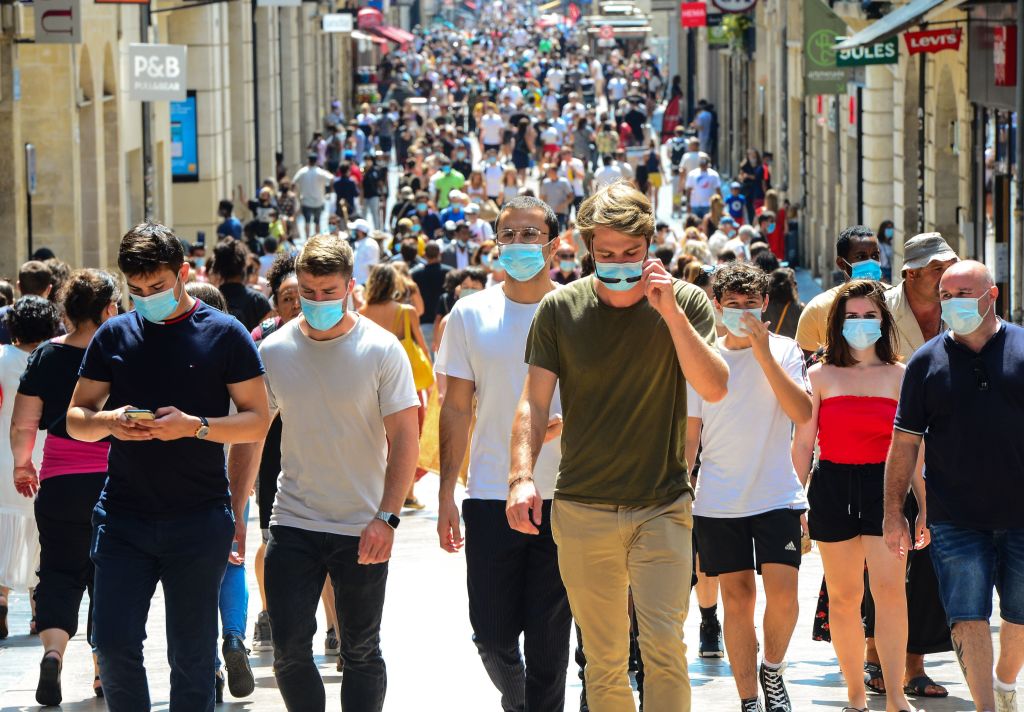
Plenty of factors determine whether someone chooses to wear a mask at this stage of the pandemic: their health, their risk tolerance, where they are, who’s around them—and, according to a recent study, how attractive they think they are.
The study, which was published in January in the journal Frontiers in Psychology, found that people who think they’re attractive tend to be disinclined to wear masks. That seems to be because people who think they’re good-looking don’t believe masks enhance their appearance, while the opposite may be true for people who don’t think they’re as attractive, the researchers concluded. (Several cultures even have slang terms for people who wear masks to look better or conceal their full faces, the authors note. In the U.S., it’s known as “mask fishing.”)
For the study, a team of researchers in South Korea recruited U.S. adults to take several surveys. In the first, 244 people answered questions about their self-perceived attractiveness and how they thought wearing a mask affected their appearance. Then, researchers told the participants to imagine they had a job interview and asked whether they would wear a mask in the interview if they didn’t have to.
More from TIME
“Individuals with higher self-perceived attractiveness were less likely to endorse the belief that mask-wearing enhances their perceived attractiveness, which further dampened their mask-wearing intention in job interviews,” the authors write. In other words, people who thought they were good-looking didn’t want to detract from their appearance by covering their face.
Read More: How COVID-19 Changes the Heart—Even After the Virus Is Gone
In another experiment, the researchers posed similar questions about masks and appearance to 442 people. They asked half the group to imagine they had a job interview (a relatively high-stakes situation) while the other half imagined they were walking a dog (a more mundane activity). Both groups were then asked if they would choose to wear a mask in their given scenario.
They found that people were more likely to say they’d wear a mask if they thought it would make them look better, and that trend was more apparent in the high-stakes job interview scenario. This finding, the authors write, suggests that people’s masking decisions are at least partially based on how much they care about looking good in a given situation.
The desire to appear attractive may even be as influential as the desire to stay healthy. In their surveys, the authors also asked people how much they feared COVID-19. People who thought masks made them look better were roughly as likely to cover up as those who were fearful of the virus.
With COVID-19 mask mandates largely a thing of the past in the U.S., it’s important for researchers and public-health authorities to know why people are—or are not—continuing to wear them. Preventing disease is, of course, a major motivator. But so, it appears, is looking good.
More Must-Reads from TIME
- Cybersecurity Experts Are Sounding the Alarm on DOGE
- Meet the 2025 Women of the Year
- The Harsh Truth About Disability Inclusion
- Why Do More Young Adults Have Cancer?
- Colman Domingo Leads With Radical Love
- How to Get Better at Doing Things Alone
- Michelle Zauner Stares Down the Darkness
Write to Jamie Ducharme at jamie.ducharme@time.com